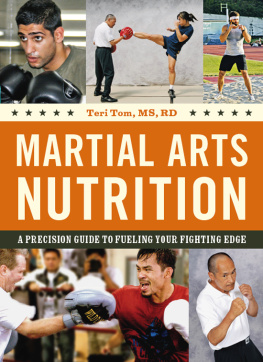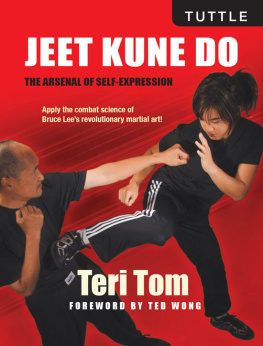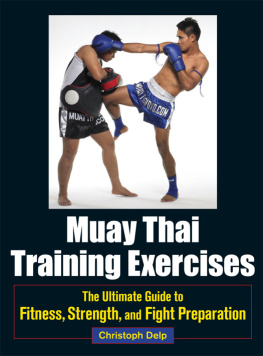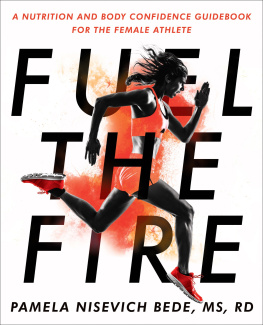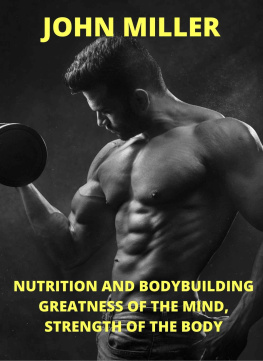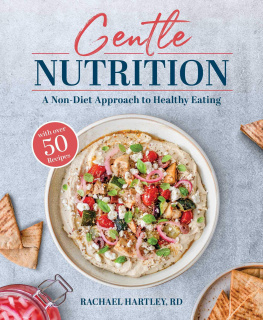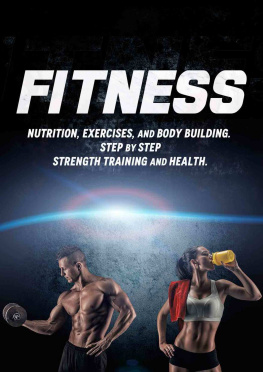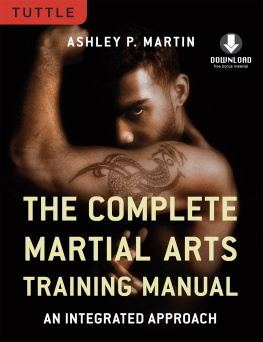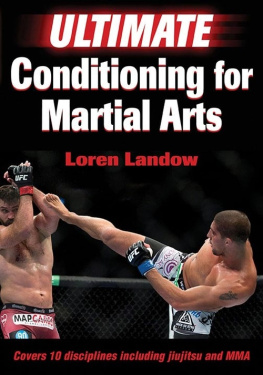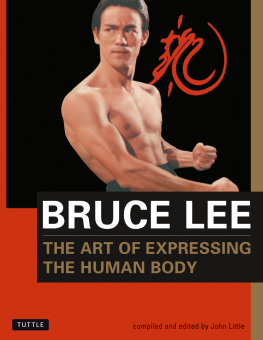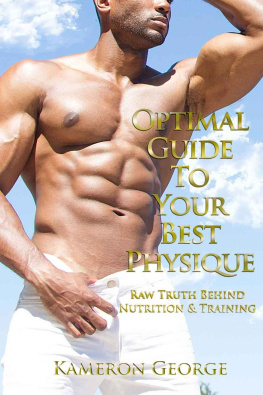To Katherine Lee Tom and Hohn D. Tom
ACKNOWLEDGMENTS
Special thanks to:
Rosie Flores for questioning my diet
Lucho Crisalle for the mentoring and WhatWorks software
New Leaf
Sensei Peter Freedman
Brett Benson
Andrei Arlovski
Amir Khan
Manny Pacquiao
Freddie Roach and Wildcard Boxing Club
My clients at the Sports Club/LA
The Crew for not letting my blood sugar dip too low
Sandra Korinchak, my editor at Tuttle
And extra special thanks to Alex Ariza for taking a chance.
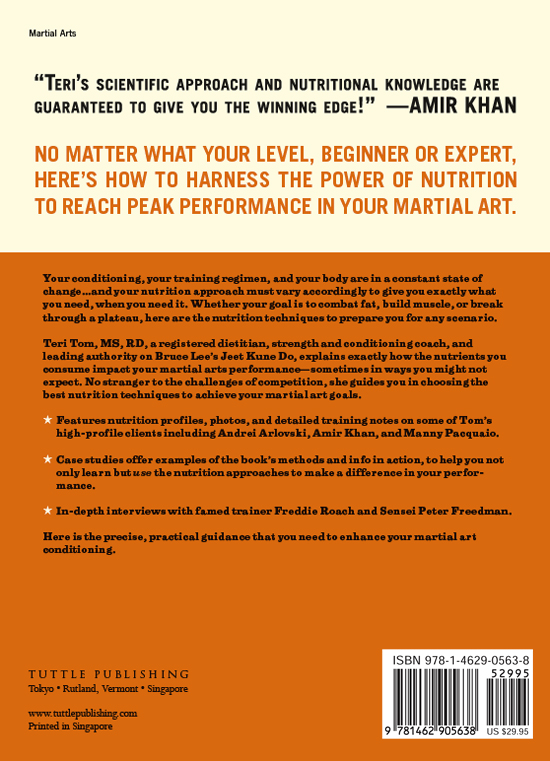
CHAPTER 1
My Story, and
What It Means for You
The road to the creation of this book has been a strangely circuitous one. From my nutrition practice at The Sports Club/LA to my clientele at Wildcard Boxing Club, people always ask me how I got into "the field." It wasn't a choice, I tell them. It was an act of survival. I share it here to give you some insight into the development of my approach.
When I was at UCLA, eating well was not exactly at the top of my list. Outside of school, I was playing surfabilly guitar in smoky clubs all over LA and the West Coast. My band had just started to generate some major label interest and had been invited to play overseas. Even more important, I had the opportunity to play alongside and learn from some of my music heroes.
I should have been having the time of my life, but I wasn't. I could barely breathe. Playing in smoky clubs four nights a week had wreaked havoc on my lungs. And being in a bandwell, let's just say we didn't eat and we didn't sleep. We played all night, worked during the day, went to the next gig, played all night, worked, drove to the gig, played all night... You get the idea.
The combination of the two trashed my immune system. If someone with a bug looked at me I'd get it. This would turn into a respiratory infection, which would, in turn, trigger an asthmatic spell that could last for weeks. It would always devolve into bronchial spasms that persisted all day and worsened at night. Unable to take a single normal breath without coughing it back out, I was kept awake by retching fits for weeks at a time.
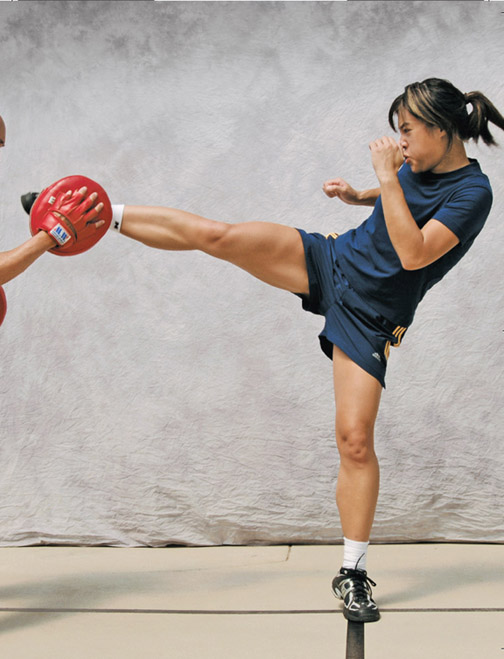
Initially, the doctors misdiagnosed me with bronchitis and gave me antibiotics. But this didn't solve the coughing problem. It just made me more susceptible to infection. After almost two years, they finally entertained the possibility that it might be asthma. So they would give me both antibiotics and anti-inflammatories to knock out the asthmatic attacks. In the short term, this worked. But I was getting respiratory infectionssinus infections, chest colds, you name itwith much greater frequency, just about every other week. This meant even more antibiotics and anti-inflammatories, a weakened immune system, more antibiotics and anti-inflammatories, a further weakened immune system, and the downward spiral continued.
I was only a few years out of college, but I was sure I would never see 30. And I probably wouldn't have except for the suggestion of a good friend. After hearing me hack away in the studio from 4:30 in the afternoon to 6:00 in the morning, unable to take a single normal breath, this friend said with typical understatement, "You don't sound too good. Maybe you should try changing your diet."
DIET?! What diet? We don't eat! We don't sleep! Come to think of it, my band mates weren't exactly pictures of health either. We'd just pass bugs around. From the bass player, to the singer, to the drummer. From the drummer, to the bass player, to the singer. From the singer, to the drummer, to the bass player. And me, I always had the bug du jour.
So when my friend in the studio suggested changing up eating habits, at that time, I would've tried anything. The doctors weren't helping. Medication wasn't helping. As a kid, I'd played a lot of competitive sportssoccer, basketball, softball, volleyball, tennis, track. At UCLA, I'd been running six miles a day. I was now nearly incapacitated, barely able to get off the couch, and completely incapable of breathing. Getting out the front door was a major event. What did I have to lose by changing my diet?
The next day I got some books on nutrition. They weren't anything outlandishjust good sound advice. I finished the books that day, hobbled out to the supermarket, and started following the guidelines.
This is the crazy part. In three weeks, hmm, I felt pretty good. I was off the couch and walking around. In three months, I was like a new person. At that point, physically, I felt good. But I was angry. How can you graduate Phi Beta Kappa and summa cum laude and not know how to feed yourself? Why don't they teach this stuff in school? Why don't they teach it in elementary schools? So I decided to get my masters degree in nutritional science and learn how to do this thing the right way. And when I got out maybe I'd save a few people the trouble of going through the same ordeal I had.
It took six years to realize this goal, but it's easily the single best decision I ever made. Every organic chemistry exam, every bio-chem lab, every hour of my clinical rotation at Cedars-Sinai was worth it.
Every day people come into my office frustrated, lacking energy, not feeling well, not seeing results, and not knowing what to do. Their doctors are threatening them with cholesterol medication, alarming lab results, and diagnoses of diabetes and hypertension. After a few weeks of following their individualized plans, the changes they see are amazingand incredibly rewarding. You'll read the success stories from just a few of my clients later in this book. I've also included their progress charts so you can see how we got them to where they are now. This will give you a glimpse of what is possible for you.
Of course, I also have my share of clients who are already well on their way to healthy lifestyles and are only seeking fine-tuning in either body composition or athletic performance. You'll find guidelines for these goals as well. The basic principles remain the same. Only minor tweaks are required to customize a plan and tailor it to the individual.
Because this is a book geared toward peak performance in the martial arts and sport, it only makes sense to follow the lead of those quintessential warriors, the samurai, in our approach to health and fitness. Their incorporation of Zen Buddhism into daily life provides the perfect roadmap to guide us through this journey toward self-actualization.
Over the years, I've come to recognize particular patterns of success. I've whittled them down to 10 principles. They are not the only elements of success, but they do have to be in place for real, lasting results. Nor are they exclusive to Zen or Asian culture; you will find similar themes in areas from pop psychology to the Transcendentalists. I use this Zen framework, though, because of my martial arts background and because this bookwhile its principles apply to everyone, regardless of their athletic endeavorsis geared toward athletes, particularly those in combat sports.
I've shared my story with you here in the hopes of demonstrating that change is within reach. It is possible to go from a near-complete inability to breathe to being able to spar a full 12 rounds. From being virtually bedridden to sprinting up a hill with your heart rate at 104% of what's estimated as the maximum heart rate for your age group. It's possible to put on 20 pounds of muscle. It's possible to improve your VO2 max. It is possible to completely re-build your body.
Next page
